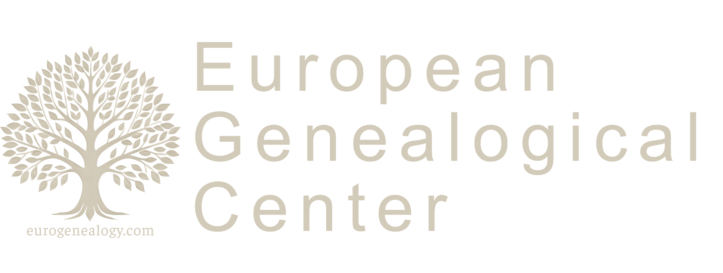Genealogy in the Netherlands: tracing Dutch ancestors
Discover your ancestry dating back to the 16th century
Archival search and family tree research in the Netherlands
Genealogical research in the Netherlands provides a compelling opportunity to uncover family roots within one of Europe’s most historically dynamic, culturally diverse, and administratively well-documented nations. Renowned for its early and consistent recordkeeping practices, efficient civic organization, and strong regional identities, the Netherlands offers an impressive and varied range of archival sources across its twelve provinces and former territories. Dutch history has been shaped by centuries of political transformation, from the era of the Spanish Netherlands and the independence of the Dutch Republic to Napoleonic occupation and the establishment of a modern constitutional monarchy. These transitions left behind a rich multilingual paper trail in Latin, Dutch, and French, capturing the complexity and layered character of Dutch heritage. At the European Genealogical Center, we assist individuals in tracing their Dutch ancestry through systematic archival research and detailed historical interpretation, revealing the personal stories of their ancestors within the broader narrative of the Low Countries' past.
The cornerstone of genealogical research in the Netherlands consists of church records and civil registration documents, which together provide an extensive base for tracing lineages back to at least the 17th century. Parish registers—kept in both Catholic and Protestant congregations—contain detailed entries of baptisms, marriages, and burials. Early records were written in Latin or Dutch, while some regions bordering Belgium show French influence as well. In 1811, under Napoleonic rule, a nationwide system of civil registration was introduced, mandating the documentation of births, marriages, and deaths at the municipal level. These civil certificates provide more comprehensive biographical details than earlier church entries, including parents' names, occupations, and addresses, making them a vital and reliable tool for constructing accurate, multi-generational genealogies. Our researchers access these documents both in physical archives and via digital portals, ensuring thorough and efficient searches across all provinces and time periods.
Sources of genealogical research in the Netherlands
To expand beyond names and dates, we also draw upon a broad array of supplementary archival sources that bring depth and context to Dutch family histories. Population registers (bevolkingsregisters), household censuses, tax rolls, and property records allow us to reconstruct patterns of residence, occupation, and inheritance. Military enlistment papers, school records, guild affiliations, and notarial deeds—such as wills, dowry contracts, and apprenticeship agreements—offer further detail on personal status and community life. Emigration documents are especially important for families with relatives who left for North America, South Africa, or Indonesia, helping trace their journeys and new settlements. Our work accounts for both urban complexities (like those of Amsterdam, Utrecht, or Rotterdam) and rural communities, many of which retained distinct naming traditions, dialects, and customs that shaped their identities. By carefully interpreting the legal, religious, and linguistic nuances of each source, we deliver research that not only connects names across generations but also vividly illuminates their lived realities and cultural heritage.


Beyond institutional records, Dutch genealogy opens a window into the daily lives, beliefs, and aspirations of ordinary people across centuries, revealing not just who they were but how they lived. Regional differences in religious affiliation, language use, and civic participation are evident in archival materials—whether through Protestant consistories, Mennonite meeting minutes, Catholic confraternity records, or Jewish community ledgers, each offering unique insights into faith, community, and governance. These diverse threads reflect the pluralistic and remarkably resilient fabric of Dutch society, shaped by commerce, migration, and centuries of local autonomy. We compile our findings into tailored genealogical books or detailed reports, combining documented lineages with maps, historical background, narrative commentary, and — when available — photographs that vividly give faces to the names and context. Every project is conducted with linguistic precision, historical sensitivity, and a deep appreciation for the Netherlands' enduring archival legacy, ensuring a final product that is both accurate and deeply meaningful for descendants.
Neighboring countries where we conduct research
Examples of our research
Below you can review examples of research reports received by our customers:
Prices for genealogical services in the Netherlands
You can find a detailed price list and description of all services of European Genealogical Center here
Prices for genealogical services in the Netherlands
Genealogical research
From €1500
Tracing family history back to the 17th century
Biographical search
From €800 to €2000
Establishing the life story of an individual and their close relatives
Nationality confirmation
From €500 to €1500
Identifying details about a person’s ethnic origin
Document search
From €200 to €1200
Obtaining certificates, parish registers, and civil registry records
Family history book
From €2500
Creating a unique publication describing the genus history
Family history website
From €2000
Development of a personal website dedicated to your family’s history
Submit a request, and we will contact you shortly
You can also reach us directly by sending an email to: european.genealogical.center@gmail.com or writing to us in Telegram

european.genealogical.center@gmail.com
© 2026
All rights reserved
All rights reserved
Contact us:

